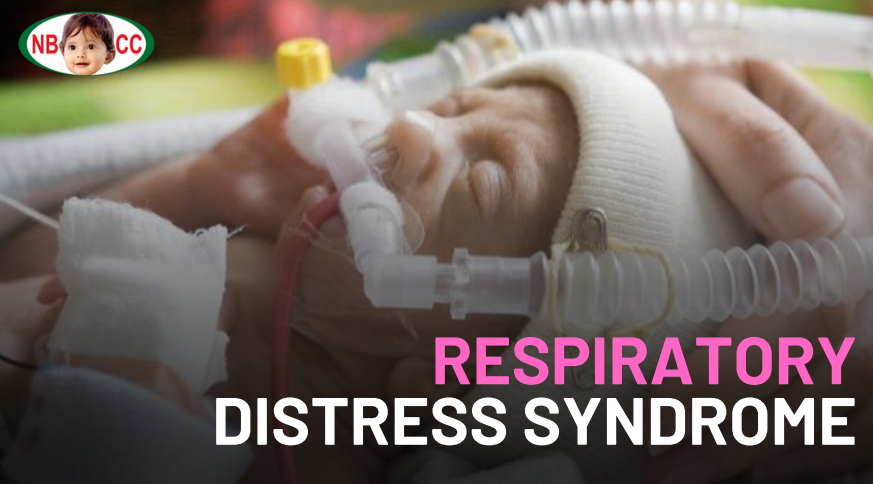Introduction:
The birth of a baby is a momentous occasion, filled with joy and anticipation. However, when a newborn is diagnosed with respiratory distress syndrome (RDS), the atmosphere quickly changes to one of worry and concern. Respiratory distress syndrome, a condition primarily affecting premature infants, can be life-threatening if not promptly and effectively treated. In such critical cases, specialized care and support become paramount for the well-being and recovery of these tiny lungs. This blog post aims to shed light on respiratory distress syndrome, its impact on newborns, and highlight the significant role of New Born Care Centers (NBCCs) in providing crucial care and support to infants with RDS.
Section 1: Understanding Respiratory Distress Syndrome
1.1 Definition and Causes:
Providing a clear definition of respiratory distress syndrome and explaining its underlying causes will help readers grasp the complexity of this condition. Discussing factors such as surfactant deficiency and immature lung development will enhance understanding.
1.2 Risk Factors:
Exploring the risk factors associated with RDS, particularly premature birth and maternal factors, will help raise awareness about the vulnerable population at risk. Touching upon environmental factors and multiple pregnancies will provide a comprehensive perspective.
Section 2: Challenges Faced by Infants with Respiratory Distress Syndrome
2.1 Respiratory Complications:
Detailing the specific respiratory challenges faced by infants with RDS, such as labored breathing, rapid breathing, and low oxygen levels, will help readers understand the critical nature of this condition. Describing the potential complications, such as pneumothorax and respiratory failure, will underscore the urgency for specialized care.
2.2 Physiological Impact:
Elaborating on the physiological impact of RDS on the newborn’s overall health, including the effects on oxygenation, lung development, and organ function, will emphasize the severity of this condition and the need for immediate intervention.
2.3 Emotional and Psychological Impact on Parents:
A diagnosis of respiratory distress syndrome can be emotionally overwhelming for parents. Discussing the emotional and psychological impact, including anxiety, guilt, and stress, will help readers empathize with the experiences of parents dealing with critical RDS cases.
Section 3: The Role of New Born Care Centers (NBCCs) in Critical Care
3.1 Specialized Medical Expertise:
NBCCs house specialized medical professionals, including neonatologists and respiratory therapists, who possess the expertise needed to diagnose and treat respiratory distress syndrome in newborns. Detailing the role of these professionals will highlight the specialized care provided by NBCCs.
3.2 Neonatal Intensive Care Units (NICUs):
NBCCs often have dedicated Neonatal Intensive Care Units (NICUs) where critically ill infants, including those with RDS, receive specialized care and monitoring. Highlighting the resources and technology available in NICUs will underscore the critical role of NBCCs in providing a safe and supportive environment for infants with respiratory distress syndrome.
3.3 Respiratory Support:
NBCCs provide various interventions to support respiratory function in infants with RDS, such as continuous positive airway pressure (CPAP), surfactant replacement therapy, and mechanical ventilation. Explaining these interventions and their significance in optimizing lung function will emphasize the comprehensive care provided by NBCCs.
3.4 Monitoring and Oxygenation:
NBCCs employ advanced monitoring techniques to closely monitor oxygen levels, heart rate, and respiratory efforts in infants with RDS. Describing these monitoring methods, such as pulse oximetry and blood gas analysis, will highlight the meticulous attention given to the newborn’s well-being.
3.5 Family-Centered Care and Parental Support:
NBCCs recognize the crucial role of parents in the care of their newborns with RDS. Encouraging parental involvement, providing education and support, and fostering open communication with healthcare professionals contribute to the overall well-being of both the infants and their families.
Conclusion:
Respiratory distress syndrome presents significant challenges for newborns and their families, requiring specialized care and support for these delicate lungs. New Born Care Centers (NBCCs) play a vital role in providing comprehensive medical interventions, emotional support, and a nurturing environment for infants with RDS. Through their expertise, advanced technology, and family-centered approach, NBCCs ensure that infants receive the critical care they need to overcome challenges and thrive. By acknowledging the significance of NBCCs in the recovery of infants with respiratory distress syndrome, we can raise awareness, advocate for better resources, and offer hope to families navigating the journey of RDS.

